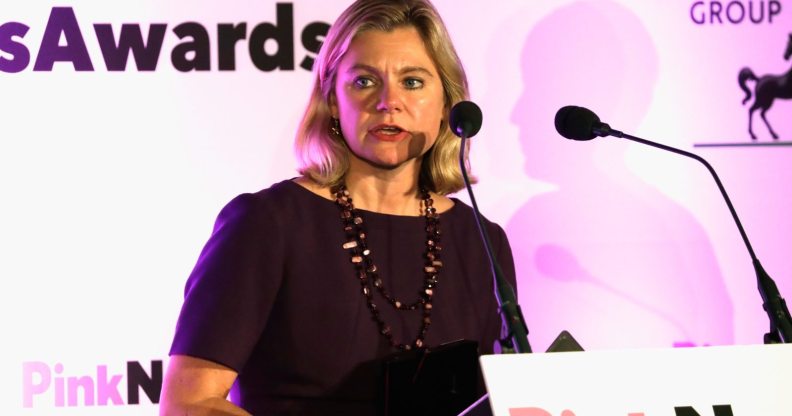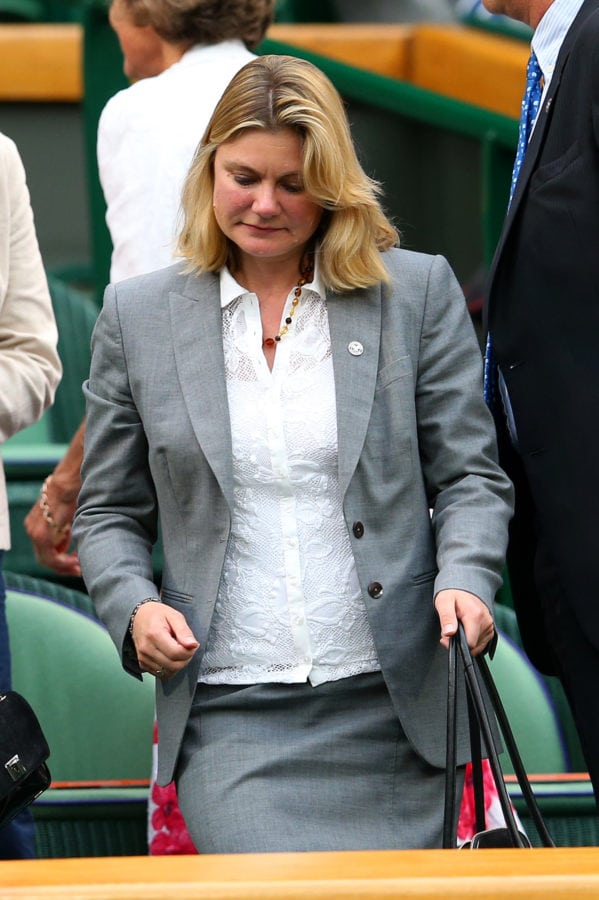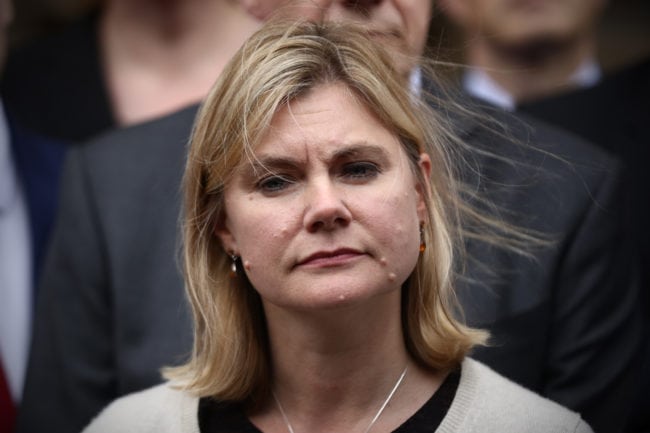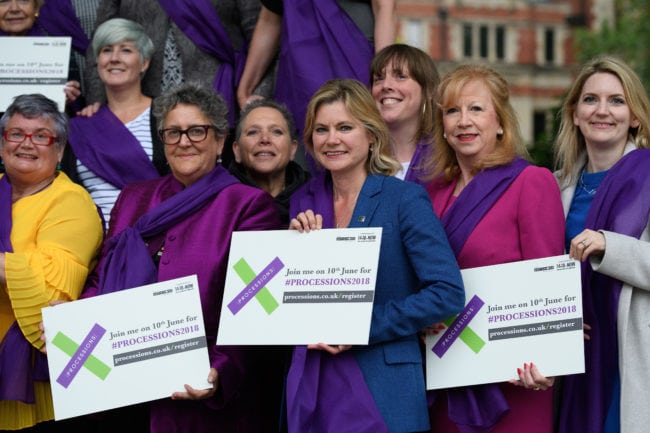Justine Greening on London Pride: Why we need to keep moving forward on LGBT rights

Justine Greening speaks on stage during the PinkNews Awards 2017 (John Phillips/Getty)
It’s two years since I chose London Pride day to tweet about being in a same-sex relationship. I picked that day because I wanted to celebrate that and I also wanted to be a part of moving things forward.
I went into politics to make a positive difference for people. Part of that is making sure I am working hard for my constituents and my community across Putney, but I also want to ensure people in this country are free to be themselves, however they are and whoever they choose to love. Not only to enable people to be their best selves, but also to prevent the far higher risk of mental ill health in LGBT people compared with the general population.
As Minister for Women and Equalities, I launched the government’s national survey of LGBT people to gain an in-depth knowledge of their experiences living here in the UK. Whether it was at work, in education, in healthcare, and personal safety, we wanted to find out the realities of their day-to-day experiences so that we can shine a light on where we need to improve and build upon the areas that are already working.
It led to an overwhelming response: More than 108,000 people contributed their views. Globally, this is the largest study of its kind and gives our country the foundations to be able to better understand the issues that our LGBT communities are grappling with. We want no voice to be left unheard and no part of our society to be ignored.

- Justine Greening (Julian Finney/Getty)
As a nation we have long been working to break down the barriers that have, in the past, left tens of thousands of Britons feeling marginalised simply because of the sex of the person they loved. We have certainly come a long way since 1967 when it finally stopped being illegal for two men to be in a relationship in England and Wales.
After this country took its first step towards decriminalising homosexuality, LGBT people took to the streets of London in 1972 for this country’s first ever Pride march, championing our newly won rights. 2004 was a milestone year for equality, as both the Civil Partnership Act and the Gender Recognition Act, which made it legal for trans people to change their gender, were passed by parliament.
Publications like PinkNews have made sure we’ve never lost sight of the need to keep moving forward on LGBT rights and it’s great news that UK has steadily and surely become a world leader when it comes to LGBT rights. But there’s so much more to do, and we have by no means arrived at our final destination.
If just one person feels they are being isolated, or discriminated against by society, then we have failed in our mission to make this country a place of equal opportunity. Five years ago, David Cameron was pivotal in ensuring that we secured marriage equality. Now, everyone can stand up in front of their friends and family and commit themselves to the person they love for the rest of their life. This was a huge moment in our history and underlined what we in the LGBT community already knew to be true: All love is equal.

- Justine Greening(Carl Court/Getty)
And yet, in spite of all this progress, the consultation’s findings indicate continued and significant societal barriers for LGBT people. Two in three respondents said they had avoided holding hands with a same-sex partner in public for fear of negative reactions. That so many couples feel they cannot share this small gesture of affection is deeply concerning. And 70 percent felt they couldn’t be frank about their relationship or sexuality because of worrying about a negative reaction – I know exactly how that feels.
Most shockingly, five percent of those who responded had been offered “conversion therapy,” with two percent having gone through the process. This can range from pseudo-psychological treatments to, in the most extreme cases, surgical interventions and “corrective” rape. This is nothing short of abuse, and we must do everything that we can to right this wrong.
We must start conversations from a young age, so that no teenager lives in fear of standing up and being who they are. We must offer the next generation the confidence to live in their own skin, regardless of how they identify. And we must take concrete action to show harassment and violence against LGBT people is simply not tolerated.

- Justine Greening poses with other female MPs to promote the “Processions” march during a photocall in Parliament Square on June 4, 2018 in London, England. (Leon Neal/Getty)
Earlier this week and in response to the survey, the Prime Minister launched the government’s LGBT Action Plan, which has made 75 commitments to help eliminate discrimination based on sexuality once and for all. These include continuing our investment in programmes to tackle homophobic, biphobic and transphobic bullying in schools to protect LGBT students; appointing a national adviser on health inequalities to ensure equal treatment for LGBT people in the NHS; and bringing forward proposals to end conversion therapy. There is no place for this abhorrent practice in modern Britain.
Enjoy London Pride. Enjoy all the other Pride events happening across the country this summer. And feel safe in the knowledge that Members of Parliament from across the political divides are listening, we are doing something about it, and together we will play our role in building a truly inclusive society.
Justine Greening is a Conservative MP representing Putney in the House of Commons.

